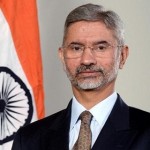Foreign Secretary S. Jaishankar embarked on a SAARC Yatra on 1 March 2015, with Bhutan as his first stop. He is currently in Bangladesh and will be in Pakistan on 3 March 2015, followed by Afghanistan the next day. Neelam Deo, director at Gateway House and former diplomat, comments on expectations from the foreign secretary’s visits.
Statement:
“Prime Minister Narendra Modi has energetically engaged with neighbouring countries since he took office in May 2014. Foreign Secretary S. Jaishankar’s SAARC Yatra will augment the Indian government’s approach in the South Asia region.
In Bangladesh, chronic political instability has taken a toll on the country’s economy and looks like it will persist. Jaishankar is expected to reiterate assurances of an expedited ratification of the Land Boundary Agreement and conclusion of the more politically-fraught Teesta Water-Sharing Agreement. But the political stand-off in Bangladesh—that is now challenging the progress of democratisation itself—marked by violent manifestations of internal political rivalries, could paralyse forward movement on the agreements.
The foreign secretary’s visit to Pakistan is central to the SAARC Yatra—talks scheduled in 2014 were called off following renewed incidents at the border and the Pakistani High Commissioner Abdul Basit’s meetings with separatist groups from Jammu & Kashmir. Jaishankar will need to seek assurances from Pakistan that there will be no disruptions in Jammu & Kashmir before the newly-elected PDP-BJP coalition government has had a chance to settle in, and resume contact—formal or otherwise—with the Hurriyat, and take action to resume movement of goods and people with Pakistan-Occupied Kashmir. Unfortunately, India and Pakistan will trade accusations of breaching the Line of Control. However, discussions on the Turkmenistan-Afghanistan-Pakistan-India (TAPI) pipeline project will have a more positive tone.
Jaishankar’s visit to Afghanistan will prepare the ground for Ashraf Ghani’s forthcoming visit to India this year. Additionally, he will need to chart a course of action for India, the largest non-OECD donor to the country. This will be a complex undertaking at a time when China, with U.S. encouragement, has begun to play a larger role alongside Pakistan in Afghanistan’s reconciliation and negotiation process.”
For further information or interview requests, please contact Reetika Joshi on joshi.reetika@gatewayhouse.in or +91 88793 61671.
———————————————
Gateway House: Indian Council on Global Relations
Gateway House: Indian Council on Global Relations is a foreign policy think tank in Mumbai, India, established to engage India’s leading corporations and individuals in debate and scholarship on India’s foreign policy and the nation’s role in global affairs. Gateway House is independent, non-partisan and membership-based.
For details on Gateway House: Indian Council on Global Relations articles and other events please visit www.gatewayhouse.in or our Facebook page on www.facebook.com/gatewayhouse.in or follow us on Twitter @GatewayHouseIND.


